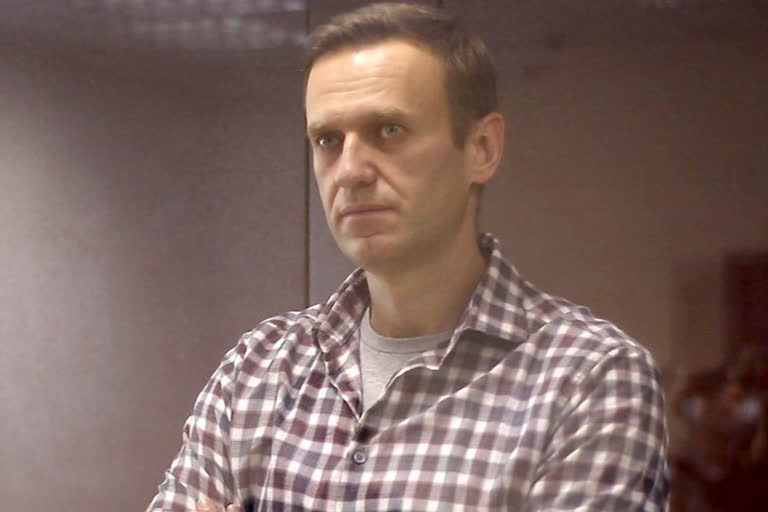Moscow: Imprisoned opposition leader Alexei Navalny said Friday he is ending his hunger strike after getting medical attention and being warned by his doctors that continuing it would put his life at risk.
He also acknowledged the mass pro-Navalny protests across Russia on Wednesday.
“Thanks to the huge support of good people across the country and around the world, we have made huge progress,” Navalny said in his message. “Two months ago, my requests for medical help were prompting smirks. I wasn’t given any medications. ... Thanks to you, now I have been examined by a panel of civilian doctors twice.”
Read:| Top Navalny associates detained ahead of protests
Another reason he was ending the hunger strike he began on March 31 was that some of his supporters were refusing to eat in a show of solidarity with him, Navalny said.
“Tears flowed from my eyes when I read that. God, I’m not even acquainted with these people, and they do this for me. Friends, my heart is full of love and gratitude for you, but I don’t want anyone physically suffering because of me,” said the 44-year-old politician, who is President Vladimir Putin’s most prominent critic.
He said he would start “coming out of the hunger strike” on Friday and the process of ending it will take 24 days.
Navalny’s doctors said Saturday that they feared he was close to dying because his test results showed sharply elevated levels of potassium, which can bring on cardiac arrest, and heightened creatinine levels that indicated impaired kidneys.
He was transferred Sunday from a penal colony east of Moscow to the hospital ward of another prison in Vladimir, a city 180 kilometres (110 miles) east of the capital.
The day after mass protests demanding his freedom swept across Russia, a team of his doctors released a letter urging him to end his hunger strike.
Read:| Navalny's health 'satisfactory' after moving to prison hospital
The letter revealed that Navalny was taken to a regular hospital Tuesday in Vladimir, where he underwent tests and was examined by specialists “in accordance” with requests from his doctors. It said they were given the results of those tests through Navalny’s lawyers and family on Thursday.
The doctors said they would continue to insist on access to Navalny but also urged him “to immediately stop the hunger strike in order to save life and health,” saying that they considered being examined by “civilian” doctors from outside the prison and undergoing “objective tests” enough to end the strike.
Prison officials insisted Navalny was getting all the medical help he needs, but he has said he effectively received no treatment.
Navalny was arrested in January upon his return from Germany, where he had spent five months recovering from a poisoning with the nerve agent Novichok that he blames on the Kremlin — accusations that Russian officials reject.
He was promptly put on trial for violating terms of a suspended sentence stemming from a 2014 embezzlement conviction, which he says was politically motivated. He was ordered to serve the rest of a 2½-year sentence.
AP



